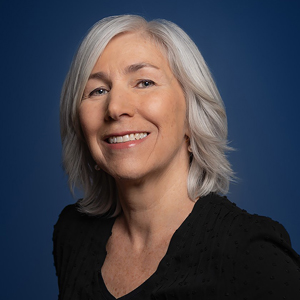Structural Genomics Consortium to lead AI-assisted Drug Discovery Initiative within the University of Toronto’s Acceleration Consortium
The University of Toronto's Acceleration Consortium has received a record-breaking $200 million Canada First Research Excellence Fund (CFREF) to advance the discovery of new materials and molecules. This award marks the largest single federal research grant to a university in Canadian history.
By bringing together partners from academia, government and industry, the drug discovery component of the consortium aims to reduce the time and cost of developing chemical probes (the first step in a drug discovery program). Within the Acceleration Consortium, the Structural Genomics Consortium’s (SGC) primary goal is to accelerate synthetic medicinal chemistry and testing of bioactive molecules using a Self-Driving Laboratory (SDL) strategy. This approach combines artificial intelligence, robotics, and advanced computing to increase efficiency and automate candidate drug design, synthesis, purification, biological testing, and data analysis cycles to discover new drug-like molecules, ultimately in a fraction of the usual time. This technology has the potential to make Canada a central player in this new research area and will encourage industry participation in Canadian university science.
Among the 6 SDLs, the drug discovery SDL4 Molecules for Drug Discovery will be led by Prof. Cheryl Arrowsmith and will serve the University of Toronto and affiliated Hospitals, such as UHN.

Cheryl Arrowsmith
Professor of medical biophysics at the Temerty Faculty of Medicine; Senior scientist at the Princess Margaret Cancer Centre, University Health Network; Chief Scientist of the Toronto node of the Structural Genomics Consortium
“The CFREF funds will advance our self-driving lab (SDL) to tackle the early stages of drug discovery by taking an initial compound and developing it into a more drug-like molecule that modulates a protein of interest in a disease. This is a design-make-test cycle that is currently done in a very iterative, slow manner. The Acceleration Consortium approach can speed the process up to try to get to the biologically active reagent much more quickly.
It has broad implications in a whole number of areas. Our SDL will complement another self-driving lab that is making engineered tissues that mimic human tissue or a disease state like a tumour – allowing one to test drugs or early-stage compounds in disease-relevant assays.
The self-driving lab concept condenses the time it takes to get to the answer you need – and does so more efficiently.”
This funding represents a significant investment in Canadian research and underscores the potential of SDLs to transform the field of drug discovery. SGC is glad to be part of this tremendous effort by sharing resources and expertise and more cohesively pursuing our joint research objectives through an open science, collaborative approach.
About Structural Genomics Consortium
The Structural Genomics Consortium is a global public-private partnership dedicated to open science. It seeks to accelerate drug discovery by fostering collaboration among a large network of scientists in academia and industry and making all research outputs openly available to the scientific community. The current SGC research sites are in Canada, Germany, Sweden, the United Kingdom, and the United States.
For more information, visit http://www.thesgc.org
